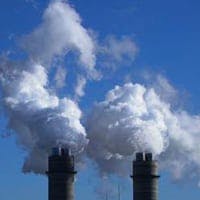The carbon tax is officially here. After much debate and many knocks it has been passed and will begin July 2012. So what is the carbon tax? Here is a brief overview.
The carbon tax is a tax on energy sources which emit carbon dioxide into the atmosphere. It is effectively a tax on pollution. It will be charged at $23 a tonne, increasing gradually until 2015. Businesses will be required to register under the National Greenhouse and Energy Reporting System.
The Government estimates that there will be about 500 high-emitting companies that will breach the 25,000 tonne threshold. These top 500 polluters fall into the following business categories.
- around 60 are primarily involved in electricity generation;
- around 100 are primarily involved in coal or other mining;
- around 40 are natural gas retailers;
- around 60 are primarily involved in industrial processes (cement, chemicals and metal processing);
- around 50 operate in a range of other fossil fuel intensive sectors; and
- the remaining 130 operate in the waste disposal sector.
Talking to businesses, I’ve been sensing a lot of unease about this new tax and the lack of information out there that will allow us to understand and prepare for it.
We are all aware that this tax will cause an increase in prices and affect the end consumer, but we have been told that we will be compensated through tax cuts and rebates.
From this information, we can gather that the Government can’t be expecting a large price increase, as the tax cuts are about $9 to the average family. The majority of end consumers should come out unshaved (so they are telling us). It will be the businesses that operate in the industries that use those products from the top 500 polluters that will be hit with an increase causing them to increase their price and pass onto their end consumer.
There is really not enough information around to estimate what businesses will be effected, but if you are involved in any of the above dot points I would be getting prepared. Do not panic and increase prices early, I estimate the flow on effect to come after July and fully hit towards the end of the year once the polluters know the damage. Who knows, they might even absorb the costs themselves.
Some industries, like the steel industry, will be given grants to entice them into finding better ways to reduce their omissions, thus there shouldn’t not be too much of a flow on effect.
Don’t fear though, because the ACCC is regulating businesses and their claims to price rises. Under the Australian Consumer Law, businesses that falsely claim increases in their prices are due to the carbon price can face:
- penalties of up to $1.1 million per contravention if a matter goes to Court.
- penalties of up to $66 000 if the ACCC serves them with an infringement notice.
This tax could not have come at a worse time, china is cooling off, the AUD is falling, the stock market is in turmoil, the building industry is slow and now the government want to tax the only thing that is really keeping this economy going so they can get a piece of the action and get some of that ill-spent money back.
Here’s hoping for a forced election as this might be the only chance to save us.

